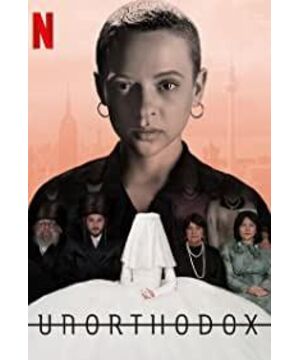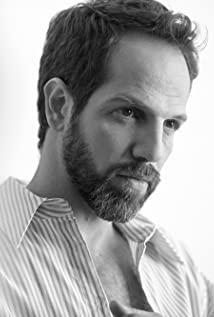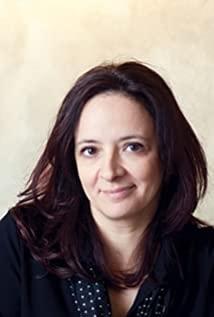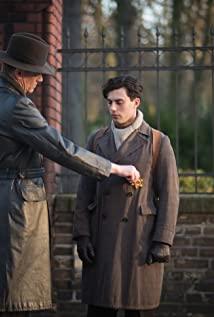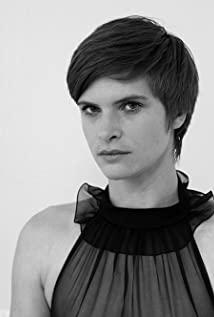Intrigued by the teaser scene of Etsy slowly taking off her wig in the lake, I clicked into the show without knowing anything about the setting. For the first half of the first episode, I couldn't figure out the timing of the show. The heroine's small flip phone and her age-defying old-fashioned dress confuses me very much. The few scenes from the streets of Brooklyn that I swept through didn't give me too many clues. After all, in highly urbanized New York, it is not uncommon for neighborhoods to remain the same as they were decades ago.
It wasn't until the heroine's piano teacher called a car for her to the airport on the spot that I realized that the time setting of the story should be very close to the present. As someone who lives in New York right now, I am shocked by the existence of this group of Hasidic Jews who still adhere to the teachings, after all, I have never heard of it before. (According to the interview with the author of the novel in the Central Plains, which was produced in the backstory, this should be a story that happened at the end of the last century and the beginning of the millennium.) However, on the Sunday after watching the play, it was a coincidence that I met on the way out to buy food. A man who was supposed to be a Hasidic Jew. He wears the exact same hat shtreimel as in the play, the fur on the hat is very well maintained and shiny. But the heaviness of the hat itself and his ankle-length black coat still looked very solemn. He held a child in one hand, the children also dressed in all black, and walked with their father obediently without saying a word. I'm guessing they've just finished church and are on their way home. The fact that I actually met a Jew who was dressed up with the show finally made me feel a little more realistic about the plot background of the show.
Although the subject matter is novel, the play has certain flaws in character characterization and conception. There are a lot of relatable places in the character of Etsy in the play, but this connection is cut off in the development of the plot. I personally feel very much about Etsy being born different, unable to fit into the Hasidic Jewish culture but forcing myself to adapt, and finally realizing that it was not my fault, and starting to escape from the spiritual struggle process of resistance. But her sudden decision to fly far away to Germany made the emotional resonance that I built with her began to wane. To have the courage to make such a decision, one must overcome the fear of being cut off from the current environment. There are very few depictions of this emotion in just 4 episodes, and it seems that Etsy doesn't have to fight too much to leave Williamsburg, where her grandmother and aunt had raised her, and live her whole life, to turn to a life she knows very little about. country and "abandoned" her mother.
Let's assume it was a decision made by the 19-year-old Etsy's major awakening and emotional boost. But Etsy adjusting so quickly to a new life in Germany started to make me question the freshness of the characters again. After all, the Etsy I know is a girl who doesn't speak German or use a search engine and still knows very little about the world. The writers seem to be intentionally making Berlin an Eden-like image here to make up for, or to contrast with, all the misery Etsy has endured in New York. Is this possible in reality? I feel deeply suspicious. It was also mentioned in the production footage that the life in Berlin in the play was not adapted from the original novel, but recreated by the playwright team. This also seems to explain this sense of disconnection to some extent. Although I haven't read the original book, I don't really believe that the author can make so many enthusiastic friends at the beginning, and participate in a professional audition with their help to successfully discover his singing talent that he has never shown.
The show is also rather limited. Because it is through the perspective of Etsy, the various living customs and cultures of Hasidic Jews produced by religious beliefs are very negatively displayed in the play. However, this kind of religious culture and customs has survived to the present after thousands of years of historical precipitation, and the reason is far more complicated than a four-episode mini-series can characterize. An unorthodox Etsy breaking the oppression of women in Hasidic Jewish culture does not justify criticizing the so-called "dross" of this religious culture in the spirit of modern society. For other women living in the same community who don't have Etsy traits, connecting with God, family, and community through existing means may mean the world to them.
The intention of the playwright team is of course good. The Hasidic Jewish community is just a background. The core purpose is to awaken women's self-awareness and encourage them to escape from an environment that oppresses and deprives them of their right to live and develop. However, the impact that a film and television drama can have can be as small as the thinking of an ordinary audience, as large as on the cultural development of a society, and can be far-reaching. How to interpret their environment and their relationship with the environment more objectively while achieving this theme, so as to create a more sustainable and referable perspective, many cultural works focusing on feminism need to sink their hearts and take good care of them. pondering question. After all, if escaping the current environment is the only way to develop a woman's sense of self, not everyone is as lucky as Etsy, with both German citizenship and musical talent.
View more about Unorthodox reviews


